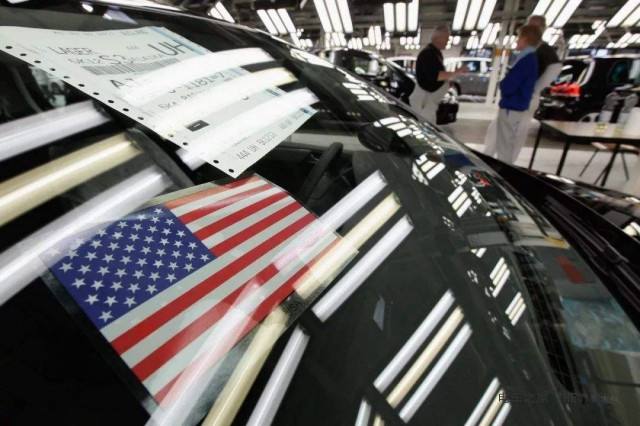U.S. President Trump threatened to impose a 20% tariff on cars imported from the EU on social media on the 22nd, which again caused international car manufacturers to worry about the deterioration of the trade environment. Industry insiders pointed out that the United States imposes tariffs on imported cars that will undermine the global industrial supply chain, hurt automakers, including US companies, and will stifle global auto industry innovation. International car companies worry about the US tariff threat Trump said on social media Twitter on the 22nd that if the EU does not “soon†cancel tariffs and trade barriers on US products, the United States will impose a 20% tariff on cars imported from the EU, much higher than the current US 2.5% of the EU's auto import tariffs. Germany's Daimler, BMW and other automakers' stocks fell on the same day. Prior to this, the US Department of Commerce had started a so-called “232 survey†on imported cars and spare parts at the end of May, claiming that overseas imports “weakened†the domestic automobile industry in the United States. According to U.S. media, the U.S. Department of Commerce plans to complete the relevant investigation by the end of July or August and submit policy recommendations to Trump before November, which may eventually lead to the US government adding tariffs on imported cars. In view of the long supply chain and complex global division of labor in the automotive industry, the U.S. automobile tariff threat has caused widespread concern among global automakers. Voller Vice President Varela recently said at the inauguration ceremony of the new factory in South Carolina, USA that about half of the parts needed by the plant will be provided by North America, and the other half will come from Europe, Asia and other places; half of the cars produced will be from the United States. The market digests and the other half will sell around the world. Varela pointed out that in order to maintain lower costs in all aspects of production and sales, it must rely on a free and open international trade environment. If the United States raises tariffs on imported automobiles and spare parts, the new plant may not be able to achieve maximum production capacity. Schweitzer, chairman of the German Federation of Industry and Commerce, also worried that the United States is moving away from free and fair trade. He expects that the increase of automobile tariffs in the United States may lead to the German automobile manufacturers increasing their automobile exports to the United States by approximately US$7 billion annually. Waving Tariff Sticks Helplessly U.S. Automobile Industry Although Trump claims to protect the US auto industry by raising tariffs, the reality is that tariff measures will hurt the global layout of the US auto industry and undermine overall employment in the United States. John Bozellah, president of the American Association of Global Automobile Manufacturers, said that according to what the association knows no one wants tariff protection, the increase of tariffs will undermine the competitiveness of the US auto industry and cause retaliation from U.S. trading partners. Earlier, in response to the United States imposed tariffs on steel and aluminum products, the European Union, Canada, Mexico and other economies have announced corresponding countermeasures. According to the Wall Street Journal, GM, Ford, and Fiat Chrysler’s three major automakers imported nearly two million cars in the US market last year, most of them in Mexico. The Trump government’s auto tariffs will also hit American automakers and increase US consumer purchase costs. Samuelson, president and CEO of Volvo Cars, pointed out that Volvo’s South Carolina plant could have created 4,000 jobs, but if the United States sets trade barriers and restrictions, the factory will not be able to achieve the desired employment target. A recent study released by the U.S. World Trade Consulting Company showed that the tariff increase will lead to an additional US$6,400 for U.S. consumers to import cars worth US$30,000. Tariffs may increase global automotive industry development At present, the global automobile industry is in an era of change, and new energy and intelligence have become the development direction of the future automobile industry. Industry insiders believe that if the United States imposes auto tariffs on the market, it will increase the production costs of international automakers and reduce the profits of auto companies, which will adversely affect the global auto industry's innovation. Volvo Kennedy, a senior executive at Volkswagen, said that the United States imposed tariffs on steel and aluminum products have increased the company’s operating costs. If the United States imposes tariffs on imported cars, the company may have to reconsider the decision to produce pure electric vehicles in Tennessee. In early June, Volvo proposed to substantially increase the sales ratio of pure electric vehicles and self-driving cars in the next decade, but Samuelson said that the United States imposed tariffs on imported automobiles and spare parts will reduce the efficiency of the entire system and reduce the company’s use of product development. And the funds for improving quality ultimately allow consumers to accept low-quality products. According to reports, the European Commission will hold a meeting next week to assess the U.S. automobile tariff threat. A report prepared for the meeting mentioned that at an important moment that should be devoted to the development of autonomous driving and electric cars, the United States threatened to add imported cars. Tariffs will challenge the global auto production model. This kind of protectionism will not help American automakers. Hook Wrench,Hook Spanner,Hook Spanner Wrench,Adjustable Hook Spanner WUQIANG HONGMA TOOLS MANUFACTURE CO., LTD , https://www.hmrapairtools.com